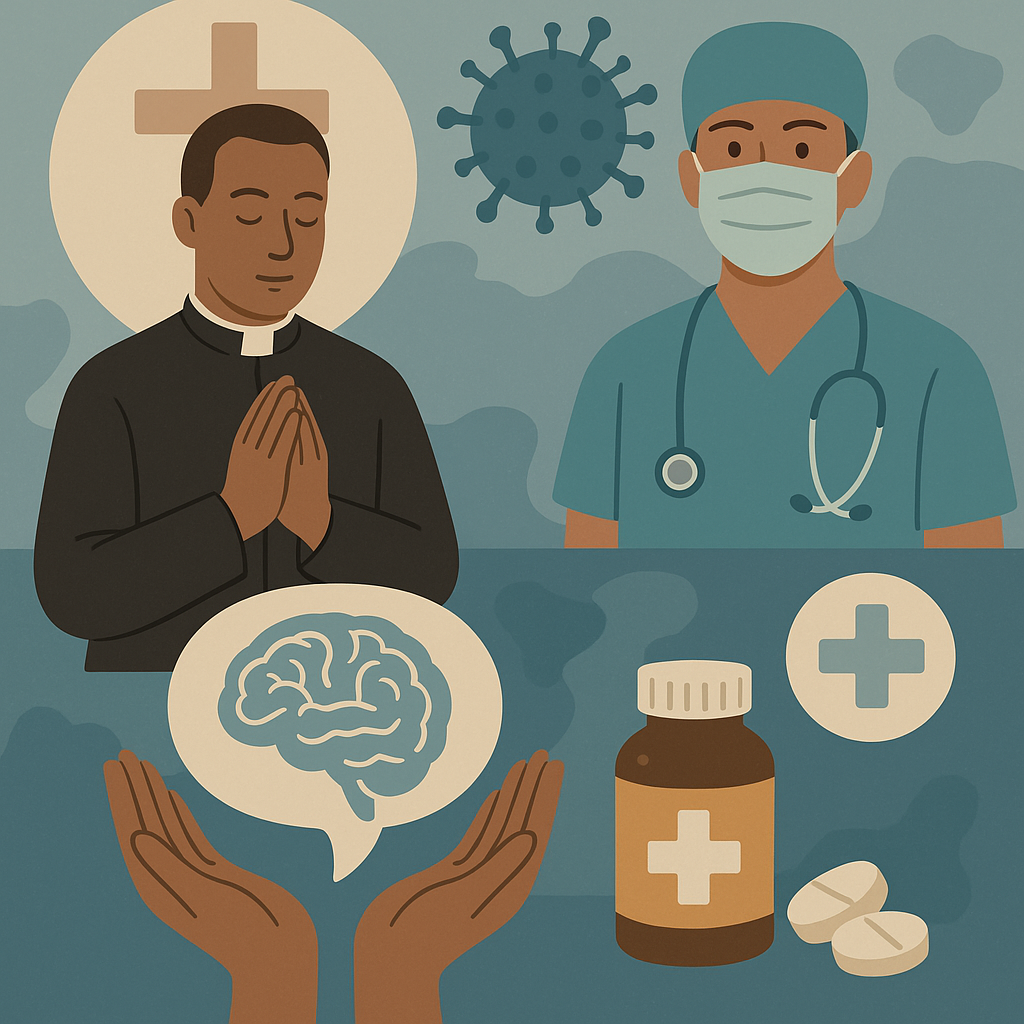Religion and Healthcare: Faith-Based Responses to Pandemics & Mental Health
Religion and healthcare have shared a deep connection for centuries, with faith communities often playing a crucial role in caring for the sick, offering solace during crises, and guiding people through mental distress. From ancient healing temples to modern hospitals founded by missionaries, religious institutions have long served as centers of compassion and care. The COVID-19 pandemic and the global rise in mental health challenges have reignited interest in how faith can support both physical and emotional healing in modern times.
Faith in Times of Crisis: Religious Responses to Pandemics
Throughout history, pandemics have not only tested healthcare systems but also people’s faith. In moments of fear and uncertainty, religion has often provided structure, hope, and meaning. During the COVID-19 pandemic, religious organizations across the world mobilized swiftly — setting up oxygen camps, food drives, and mental health helplines. Temples, churches, mosques, and gurdwaras became centers of community service and care when hospitals were overwhelmed.
For example, Sikh gurdwaras globally organized “Langar Sewa” to feed millions regardless of religion. Churches in Europe and Latin America transformed their halls into vaccination centers. Islamic charities distributed hygiene kits and offered burial services with dignity. Hindu ashrams and spiritual groups spread awareness about safety, yoga, and immunity through Ayurvedic teachings.
Faith leaders also played a crucial communication role. In many rural areas, misinformation about vaccines and medical protocols spread rapidly. Priests, imams, and monks often acted as trusted voices to dispel fear, encourage vaccination, and promote health guidelines — bridging the gap between science and belief. This collaboration between healthcare workers and faith institutions highlighted that both medicine and spirituality could work hand in hand to save lives.
The Spiritual Dimension of Healing
Religious traditions have always recognized that healing extends beyond the physical body. The spiritual dimension of health — the balance of mind, body, and soul — lies at the core of many faiths. Hinduism speaks of Ayurveda and Prana (life energy), emphasizing holistic well-being. Buddhism teaches mindfulness and compassion as paths to mental clarity. Christianity highlights faith, prayer, and forgiveness as tools for healing, while Islam integrates both physical care and spiritual purification through dua (prayer) and sadaqah (charity).
During pandemics, when people were isolated, bereaved, and anxious, this spiritual layer became more vital than ever. Online prayer meetings, virtual satsangs, and meditation sessions became sources of emotional support. Faith communities offered online grief counseling and spiritual guidance, helping millions cope with loneliness and uncertainty.
Studies have shown that individuals with strong faith or spiritual practices often report lower levels of anxiety and depression during crises. Prayer and meditation stimulate hope and a sense of belonging — two essential elements for psychological resilience.
Mental Health and Religion: A Renewed Conversation
Mental health has long been stigmatized in many societies, and religion has had a complex relationship with it. While traditional beliefs sometimes misunderstood mental illness as spiritual weakness or possession, many faith communities today are reinterpreting their teachings to align with psychological science.
In India, organizations like Art of Living and Brahma Kumaris have pioneered stress-relief and meditation programs that integrate spiritual practices with modern therapy. Christian counseling centers now combine Biblical reflection with psychological techniques. Islamic scholars and psychiatrists have initiated discussions around spiritual depression and how faith can enhance recovery when paired with medical care.
During the pandemic, mental health ministries grew rapidly. Many temples and churches launched “listening circles” and helplines to help people experiencing anxiety, trauma, or grief. The idea that “faith without empathy is incomplete” became a guiding principle for many religious workers.
Faith and Modern Medicine: Toward a Holistic Future
The collaboration between religion and healthcare is evolving beyond charity. Hospitals now invite chaplains and spiritual counselors to work alongside doctors. Patients often seek prayer rooms or rituals before surgery, viewing healing as both a medical and sacred process.
The World Health Organization has also recognized the importance of “spiritual health” as part of overall well-being. In countries like India, traditional systems like Yoga and Ayurveda are now scientifically validated and incorporated into public health policies. Religious institutions are funding hospitals, sponsoring vaccination campaigns, and creating mental wellness programs rooted in compassion and service.
However, this partnership also requires balance. Faith leaders must promote evidence-based healthcare, while doctors should respect spiritual values. When guided responsibly, religion can complement modern medicine — offering comfort, community, and meaning where medicine alone cannot.
Healing the Body and the Soul
Faith has always been humanity’s companion in sickness and suffering. Whether through ancient healers or modern spiritual counselors, religion continues to remind us that healing is not just about curing disease — it is about restoring wholeness. As the world faces ongoing health crises and mental stress, faith-based responses can offer a moral compass and emotional anchor. By uniting medical science with spiritual wisdom, societies can build a future where healthcare is not only about survival, but about compassion, hope, and holistic well-being.
~Religion World Bureau










